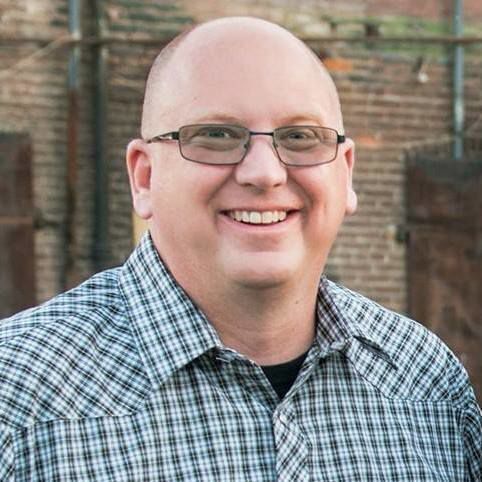Umatilla County to change mental health providers
Published 5:00 pm Monday, May 31, 2021

- Shafer
Umatilla County’s mental health services will undergo a significant change this year as the county brings in a new provider to handle mental health and addiction treatment.
In an administrative meeting on Wednesday, May 26, Umatilla County commissioners voted in agreement with a unanimous recommendation from a five-person committee to award a contract to Community Counseling Solutions as its new mental health and addiction services provider.
“For somebody in crisis, whether they’re struggling with mental health, or if they’re under the influence of intoxicants, or both, which is usually the case, they’re going to get the service they need immediately,” said Umatilla County Commissioner John Shafer, the county’s liaison for mental health.
The committee was composed of an educator, law enforcement staff and county employees. They recommended CCS, a behavioral health provider based in Heppner that serves Morrow, Gilliam, Grant and Wheeler counties, over Lifeways, an Ontario-based mental health provider that has served the county for 14 years and operates in Eastern Oregon and Idaho.
“It’s an incredible opportunity, to work in Umatilla County, to work with the customers that we will serve and the community partners and the commissioners,” said Kimberly Lindsay, executive director for CCS, which employs roughly 200 people. “But it’s not without risk.”
Lifeways plans to protest the county’s decision, according to Liz Johnsen, chief operating officer for Lifeways. She said Lifeways has concerns over the decision, but declined to say what those concerns are.
Merging services
The county’s own alcohol and drug treatment services cover substance abuse, while Lifeways handled mental health care for the county. But patients in crisis often fall under both categories at once, officials say, at times leaving it unclear which entity should respond to someone in need.
“What you see is two (community mental health providers) pointing their finger at the other one,” Shafer said.
Community Counseling Solutions is going to handle both.
“For us, the bar is high,” said Lindsay. “We put a lot of thought into it before we decided to respond to the (request for proposal) because if we’re going to do something, we have to do it very well or die trying.”
An independent consultant determined the county would be better served with a single entity covering both services. That prompted the county to put out a request for proposals for a community mental health provider to combine these services under one umbrella, said Shafer, who was one of the five people on the committee that recommended CCS over Lifeways.
Mark Royal, the interim director of Umatilla County Health and Human Services, said he felt confident in the county’s decision to go with CCS as its new provider. He said the proposal held strong indications that Community Counseling wanted to work well with the county as a partner, saying “that was the most important piece.”
Lifeways employs more than 120 people in Umatilla County, most of whom are county residents, Johnsen said. She said this transition will “have a huge impact on them” and that “their lives are in flux because of this decision.”
Transition concerns
Johnsen described the county’s decision as a “pretty large blow to a workforce that loves their work and really are experts in their field.”
“It’s a difficult thing to think about,” she said. “It’s not just employees to think about. It’s families.”
Shafer said he expects “a lot of Lifeways personnel becoming employees with CCS.”
Lindsay said she has reached out to Lifeways to begin the transition process. She added she “feels very badly” about the “awkward and probably stressful state” for the Lifeways employees.
“I was told once to make very few promises but to keep every promise that you make,” she said. “So I’m not going to promise that this is going to be the best job of their life, or that it’s all going to be oatmeal and honey. But what I can say is that most of the people who work for CCS enjoy their jobs.”
The decision comes just weeks after Lifeways reopened the former Aspen Springs Psychiatric Hospital in Hermiston as a secure residential treatment facility on May 4. The facility, which served patients in need of acute psychiatric care, closed in early April due to staffing challenges exacerbated by the pandemic, after being open for just seven months.
Johnsen could not comment about what Lifeways plans to do with its county facilities. She also said the transition for patients at Lifeways will be “quite a change,” but refrained from commenting on specifics.
“Our goal is to make sure that whatever transition occurs, to have them at the forefront and their needs at the forefront,” Johnsen said of Lifeways patients.
Lindsay recognized the transition will have its inherent challenges for patients.
“There will be some people that it’s going to be uncomfortable for,” she said. “There’s going to be some people that are not going to like it, even though their counselor might remain the same. We just need to provide as many reassurances as we can. You lose people when you make promises that you cannot keep and you operate without integrity.”
Shafer said he doesn’t anticipate there being any problem for the transition for patients between the two providers. He added that officials with Greater Oregon Behavioral Health Inc. and the Oregon Health Authority have offered to assist in the transition.
“The last thing we want to do is to upset anyone who’s in treatment for addiction or mental health or whatever,” Shafer said. “We don’t want to interrupt their treatment. We want it to be smooth and as seamless as possible for them.”
Reliability matters
Shafer, who worked for the Umatilla County Sheriff’s Office for 18 years, said he was more confident in the ability of CCS to respond quickly and consistently to people in crisis than Lifeways.
“Their philosophy is, when somebody is in crisis and law enforcement calls them, they go, period, no questions asked,” Shafer said.
“CCS shows up,” Lindsay said. “So if law enforcement is out on the scene, and they want us to come, we come. That’s the bottom line.”
He said too often Lifeways’ response to law enforcement requests for help required prolonged questioning that sometimes ended in Lifeways declining to send help entirely.
“Meanwhile, now the law enforcement officer is stuck dealing with someone who is in crisis and needs help,” Shafer said. “And law enforcement officers are not equipped to deal with that.”
Shafer said CCS will take over addiction services in the county in September and mental health services sometime around December.
“It will be a slow transition for them to get up to speed,” Shafer said.
Lindsay said she is looking forward to building a relationship with the county, holding and attending meetings and getting to know community partners. However, she said the task before CCS is daunting.
“The bar is high,” she said, “which means the fall is great.”






